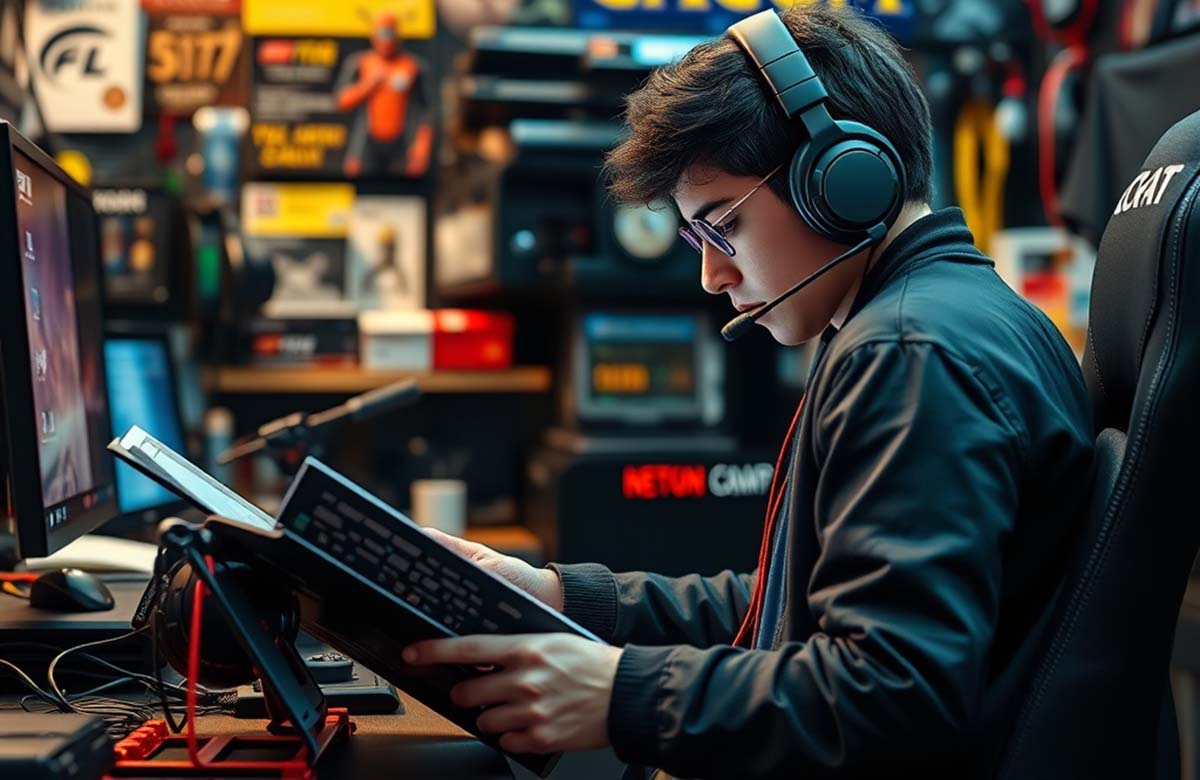How to Get Your Friends Into Capcom Games Without Overwhelming Them
Start With Yourself
Before inviting others to play, it’s a good idea to know the details yourself. Be familiar with each Capcom game’s version differences, cross-play availability, platform compatibility, and any beginner-friendly features. For instance, Street Fighter 6 includes a Mission Tutorial mode that can ease new players into the system.
Be ready to answer questions like “Do I need a subscription to play online?” or “Can I use my Steam Deck?” Having clear answers shows you’re reliable. It helps your friend feel confident rather than confused or hesitant.
You should also reflect on your own reasons. Do you want someone to grind co-op quests with every weekend? Or are you hoping to share the excitement of a tough boss battle? This self-check helps you shape your approach more naturally—without sounding pushy.
It also helps to stay current. Read patch notes. Watch gameplay breakdowns. Try new modes before recommending them. If your friend runs into issues and you can guide them step by step, it removes a major barrier. You’re not just recommending—you’re mentoring.
Understand What Your Friend Likes
Not every player has the same taste. Some enjoy emotional storytelling, while others prefer fast-paced matches. If your friend leans toward strong narratives, Resident Evil might interest them more than Marvel vs. Capcom. If they love social play, Monster Hunter’s cooperative system is a great match.
Their schedule also matters. If they’re often busy, shorter sessions like arcade-style games might fit better than long grinding hunts. The best game to suggest isn’t just the most popular one—it’s the one that fits their lifestyle and personality.
Don’t assume they’ll like what you like. A friend who’s a movie buff may enjoy cinematic cutscenes in Resident Evil Village. Someone into puzzles might find satisfaction in exploration-heavy maps like those in Devil May Cry 5. When your suggestion matches their interest, they’ll feel seen—and that’s powerful.
One helpful method is to share how you got into it. Try saying, “I remember how thrilled I was when I landed my first perfect parry in Street Fighter 6. I want you to experience that too.” Personal moments are often more convincing than lists of features.
And if they’re hesitant? Don’t rush. Let the idea simmer. Sometimes, people just need to see fun moments unfold first before jumping in.
Pick a Game That’s Easy to Learn
- Street Fighter 6 – Its modern control mode only needs three basic buttons, making it accessible for beginners while still offering depth for advanced players.
- Resident Evil 4 Remake – With balanced pacing and adjustable settings, it’s less intimidating than earlier survival horror entries.
- Monster Hunter Rise – Features like Guided Village Quests and structured weapon trees help new players understand complex mechanics over time.
- Devil May Cry 5 Special Edition – Ideal for fans of stylish combat. Players can grasp basic combos early before tackling advanced techniques.
Most titles offer free trials or demos on different platforms. Let your friend test a few to see what feels most comfortable. Once they find a title they click with, it’s easier to branch out into others like Dragon’s Dogma 2 or Exoprimal.
Also consider accessibility. Some players might need subtitle options, colorblind support, or simplified inputs. Capcom has gradually improved in these areas. Highlighting those features shows that you’re thinking about their experience—not just your own.
If they enjoy their first game, they’re more likely to check out others in the same series or try related franchises. That first step sets the tone for what could become a long-term interest.
Beyond Graphics: Talk About History and Meaning
Many people connect more deeply with a game once they understand the story behind it. Mention how the first Resident Evil changed horror gaming back in 1996, or how Street Fighter II helped shape fighting game standards that are still followed today.
You might also explain how Monster Hunter evolved from a niche multiplayer title to a worldwide cooperative sensation. These games didn’t just appear out of nowhere—they grew with the audience.
Link the games to wider culture. For example, Chun-Li has become a symbol of female strength in esports. Hideki Okugawa’s soundtrack for Third Strike is still played in music events from New York to Paris. These examples show how Capcom games go beyond the screen—they reflect art, identity, and global trends.
For anime fans, the visual flair of Devil May Cry or the character-driven drama of Ace Attorney might feel familiar. Music lovers might enjoy the jazzy or orchestral tracks woven into many series. Relating these elements to real-life interests helps build curiosity in surprising ways.
Co-op and Versus Modes Bring People Closer
Studies show that shared play can strengthen social bonds. Whether you’re teaming up to take down monsters in Monster Hunter or trading jabs in Street Fighter 6, the shared experience matters.
Set things up in advance. Make sure your connection is solid. If needed, assign a voice chat tool and plan a relaxed “training lobby” session with friendly matches. For new players, these stress-free rounds help them build confidence.
For couch co-op players, split-screen titles or passing the controller can recreate old-school fun. Many Capcom titles let you take turns with challenging stages or boss battles.
Winning isn’t the main goal. Sometimes, losing to a giant Tigrex together or barely surviving a tough enemy becomes a story you both remember and laugh about—even outside of gaming.
Playing together builds shared memories. It’s those little moments—laughing over a mistimed combo, surviving a sliver of health, or unlocking a rare outfit—that stay with people. Games become a social space, not just an activity.
Use Digital Tools to Make Things Easier
Once their interest builds, help them stay updated. Suggest following the official Capcom Asia feed on X for tournament news and game expansions. Bookmark regional hubs like the Steam News section or PlayStation Blog to track discounts and updates.
If your friend prefers visual guidance, show them the Capcom YouTube Channel. It features beginner guides for Street Fighter 6 and even a live orchestra performing Resident Evil’s soundtrack. Many videos have subtitles in various languages, so they’re useful whether your friend is from Latin America, Europe, or Southeast Asia.
Suggest Discord servers, fan wikis, or subreddit communities that are known for being friendly. Safe spaces are essential for newcomers. They’ll feel more welcome when they see helpful tips and encouraging players rather than gatekeeping.
You can also mention mobile apps like PlayStation Remote Play or Steam Link, which let users try games without being tied to a specific room or setup. Making gaming feel more accessible encourages casual interest to grow.
Support the Hobby Over Time
Helping a friend get started is just the beginning. Sometimes they’ll need a little push to keep going. Create a weekly routine—maybe just an hour each Sunday—to play co-op hunts or have friendly sparring matches.
Celebrate the small wins. That first perfect parry, their first S-rank mission, or even their first High Rank monster hunt—all are worth sharing in your group chat. Posting screenshots or short clips helps them feel proud and encourages them to keep playing.
When major events like the Capcom Pro Tour Finals or the Tokyo Game Show happen, consider watching them together online. It’s exciting for newcomers to see high-level play and new content announcements. These shared moments build a sense of belonging within a worldwide community.
Give feedback gently. If they’re struggling, show them how to improve without criticism. Highlight progress. Give tips as suggestions, not demands. A positive tone builds their confidence and keeps them interested.
Remember, it’s not about how quickly they progress. It’s about how much they enjoy the ride—and how often they come back for more.
Warm Advice for Lasting Fun
The best way to introduce Capcom games to your friends is by being thoughtful. Learn what excites them. Choose a title that fits their mood and schedule. Then stay with them throughout the learning curve.
You don’t need to be a coach. Just be present. Laugh with them. Cheer them on. Let the moments build naturally.
Once they feel comfortable with that first match, their curiosity will lead them forward. Their game library will grow—and so will the connection between you. It’s more than just games. It’s about building a friendship that stretches from the controller to real life.


